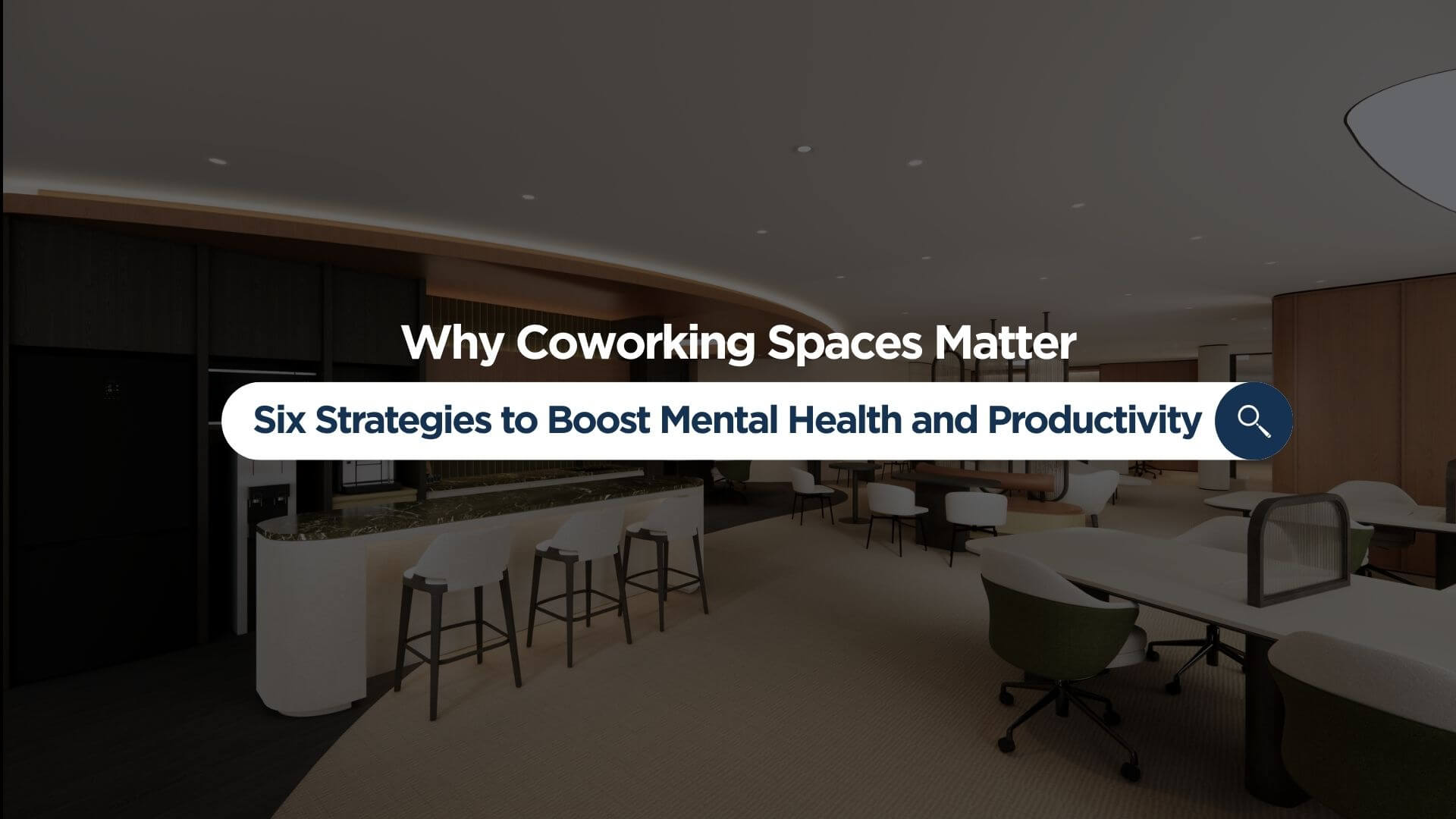Recent reports indicate that 77% of employees have experienced burnout at their current job, which can negatively impact productivity and workplace morale. This disengagement can ultimately cost companies up to $5 million annually, according to Fortune magazine. A negative work environment can lead to stress, burnout, and poor performance, while being in a positive work environment can enhance productivity, engagement, and mental health.
Being an employee in a supportive workplace is good for one’s mental health as it provides opportunity for open communication, a comfortable physical environment, and is built on a strong team culture. On the other hand, being trapped in a toxic work environment may involve a lack of trust, high workloads, and minimal support, all of which contribute to a range of mental health challenges among employees.
To promote good employee mental health at work, it is important that all organisations minimise workplace stressors and actively foster a positive work culture. Here are six essential strategies for improving workplace mental health, which ultimately will enhance productivity.
1. Managers Play a Major Role in Promoting Mental Well-being

To enhance mental health and well-being in the workplace, organisations can appoint leaders to act as guides towards positive mental health practices. For example, managers who oversee teams can be equipped with training and skills to identify and address workplace stressors. Research shows that leaders with mental health awareness training exhibit improved attitudes toward employee well-being and are more motivated to support their teams.
Heavy workloads and tight deadlines should not always be the norm for employees in an organisation. They hugely contribute to anxiety and burnout. Managers are the ones to ensure that workloads are equally distributed and encourage employees to voice concerns about excessive responsibilities so that something can be done about it.
For instance, providing resources such as time management tools that help employees stay organised and track work progress, stress relief programmes, and flexible working hours can help employees manage their workloads more effectively. These will lower the risk of burnout and other stress-related health issues.
2. Encourage Work-Life Balance with Flexible Work Arrangements

Finding work-life balance is always a delicate matter, but it is not entirely impossible. Flexible work arrangements — including remote work, hybrid models, and flexible schedules — will help employees move closer to finding the perfect balance.
Flexibility at the workplace allows employees to manage their professional and personal lives better. A 2024 survey by the American Psychological Association (APA) found that employees who have control over their work environment experience greater motivation and satisfaction.
With the shift towards hybrid and remote work, coworking spaces have become an essential solution for employees seeking flexibility and a sense of community. A workplace that fosters mental health and productivity is the ideal approach.
3. Improve Health Insurance Policies to Support Mental Health

We are living in this day and age when mental health issues in the workplace are not as uncommon as it used to be. Ideally, workplace health insurance extends holistically into the mental health area by covering therapy, counselling, and psychiatric services for all employees. Employers can also provide easy access to information about mental health benefits. Clear communication about available mental health services can encourage employees to seek help when needed.
The idea of taking a mental health day should no longer be frowned upon. Instead, employees should be encouraged to take time off to recharge, seek therapy, or manage stress without guilt. Organisations that prioritise mental health leave policies foster a culture of well-being and compassion.
4. Foster a Caring Culture

Everyone deserves to be heard. Employees who are able to effectively voice their concerns will become more engaged and committed to their organisation. Creating a psychologically safe environment where employees feel comfortable expressing concerns without fear of judgment is essential. Research by Google found that teams with high psychological safety exceeded performance targets by 17%, while those with low psychological safety missed targets by 19%.
Taking full advantage of anonymous surveys, town hall discussions, and one-on-one meetings can provide valuable insights into the minds of these employees. Actions taken and changes made based on these inputs and feedback will make employees feel valued and supported. Aside from voicing out concerns and giving feedback, having conversations about mental health can make employees feel valued and improve overall workplace morale.
5. Prioritise Equity, Diversity, and Inclusion (EDI)

We heard about equality being discussed around us all the time. The fact is, companies with strong diversity and inclusion policies tend to perform better. Experiences of interpersonal and organisational inequity and discrimination are highly connected to stress and can propel people to leave their jobs.
Diversity is necessary to help businesses thrive. Research shows that diverse leadership teams lead to higher productivity and innovation. Employees from diverse backgrounds often encounter distinct challenges, making inclusive policies essential for mental well-being. When individuals of varying abilities or socioeconomic statuses have equal opportunities for promotions and incentives, they are more likely to engage meaningfully in their work.
6. Conducive Physical Work Environments

A well-designed workplace contributes to mental well-being. The physical work environment can play a significant role in employee mental health. A poorly designed workplace can include factors such as loud noise, lack of privacy and comfort, and ergonomic issues. These factors don’t allow employees to work efficiently, which can increase stress and lower productivity.
A designated relaxation space within the workplace can help employees recharge after hours spent in front of the computer or an important meeting. Break rooms equipped with comfortable seating, mindfulness activities, or guided meditation programmes can improve mental well-being. Short breaks during work hours should be encouraged as they can also help reduce stress and boost productivity.
Major coworking spaces like INFINITY8, WORQ, Common Ground and Regus provide a structured yet flexible environment that allows employees to work according to their preferences. The availability of private rooms, communal workspaces, and lounge areas helps individuals find a balance that suits their workflow and mental well-being.
The Rise of Coworking Spaces
Manager training, flexible work arrangements, inclusive policies, and a supportive physical work environment are some of the key strategies organisations could implement to prioritise mental health and boost productivity and employee retention.
A positive work environment is essential for maintaining mental health and productivity. Coworking spaces help reduce isolation by providing structured flexibility and a collaborative atmosphere, including private desks for focused work and communal areas where professionals can connect, share ideas, and build meaningful relationships.
Coworking spaces play a crucial role in supporting mental well-being by offering a structured yet flexible environment that fosters connection, collaboration, and productivity. Unlike traditional offices, they reduce isolation, provide diverse workspaces for focus or teamwork, and offer wellness amenities. Their flexibility empowers employees to manage workloads effectively, preventing burnout and improving work-life balance. As the future of work evolves, coworking spaces help address key mental health challenges, leading to healthier, happier, and more engaged employees. Move a step closer to your dream workspace by booking your consultation with INFINITY8 today.




